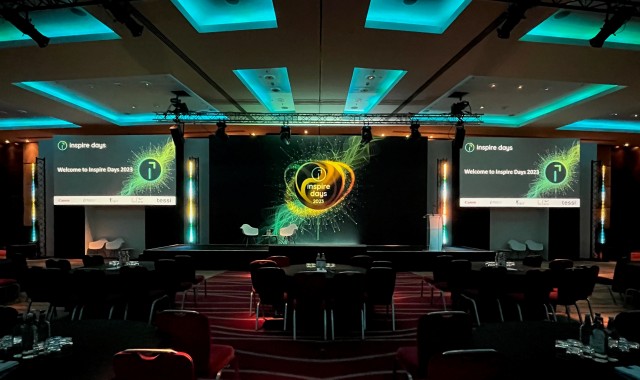Understanding Just How Occasions Manufacturing Functions: A Comprehensive Overview of the Process
The intricacies of occasion manufacturing need a methodical strategy that incorporates multiple stages, each playing an essential duty in the total success of an event. Understanding the nuances of budgeting, source allotment, and on-site administration is essential for any kind of expert in this area.
Initial Preparation and Idea Development
Efficient preliminary preparation and idea development work as the foundation for successful occasions production. This phase includes specifying the event's objective, target audience, and preferred outcomes. A clear vision is necessary; it overviews all subsequent choices and assists straighten the group's efforts toward a typical objective.
Throughout this phase, conceptualizing sessions can be invaluable. Involving stakeholders, consisting of clients, sponsors, and possible attendees, promotes a joint setting that produces cutting-edge ideas. In addition, thorough marketing research should be conducted to understand patterns, choices, and potential obstacles.
As soon as the idea is developed, it is crucial to create a comprehensive event synopsis. This overview needs to include the event's style, style, and essential tasks. Developing a timeline is equally important, as it aids to handle deadlines and tasks efficiently.
Budgeting and Resource Allocation
With a strong idea in area, interest has to turn to budgeting and source appropriation, which are essential components in implementing the event efficiently. A well-defined budget offers as a roadmap, describing all expected expenses and available resources - Event Productions.
Source allowance includes appointing both financial and human sources to various tasks and parts of the occasion. Prioritization is key; crucial elements ought to obtain adequate funding while much less vital elements may call for an extra conventional method. Contingency preparation is crucial-- alloting a part of the budget for unforeseen expenditures can reduce monetary dangers.
In addition, reliable interaction among team members pertaining to spending plan restraints promotes collaboration and innovation. This advertises the liable use of resources and motivates innovative options to remain within budget. Ultimately, a strategic strategy to budgeting and resource allocation prepares for a successful occasion, allowing coordinators to focus on supplying a memorable experience for attendees while keeping monetary integrity.
Logistics and Coordination
Navigating the intricacies of logistics and sychronisation is vital for the seamless implementation of any event. This stage entails meticulous planning and organization to make certain that all components operate in harmony. Trick aspects consist of venue selection, transportation setups, and the organizing of numerous tasks.
Effective logistics starts with an extensive evaluation of the location's constraints and capacities. This consists of understanding the layout, access factors, and readily available resources. Once the place is confirmed, transport logistics need to be established, incorporating the activity of attendees, equipment, and materials. Coordinating these elements calls for cooperation with vendors, suppliers, and transport solutions to ensure prompt shipments and pickups.
Another critical facet is the growth of an extensive timeline that describes all logistical aspects leading up to the occasion. This timeline acts as a roadmap, detailing crucial milestones and deadlines for tasks such as devices arrangement, providing solutions, and try these out audiovisual installments. Regular interaction with all stakeholders is crucial to address any kind of potential issues proactively.
Implementation and On-Site Administration
Successful execution and on-site management are vital for transforming thorough strategies right into reality during an event. This phase includes the seamless control of numerous elements, ensuring that every information aligns with the well-known vision. On-site supervisors play a pivotal function, working as the main factor of interaction amongst vendors, personnel, and stakeholders. Their capability to make real-time choices can dramatically influence the event's success.
A distinct routine is essential, working as a roadmap for all tasks. Event supervisors have to ensure that configuration takes place in a timely manner, sticking to timelines for sound checks, catering distributions, and visitor arrivals. Efficient analytical skills are also important; unforeseen difficulties can occur, requiring check that fast reasoning and versatility to keep the event's circulation.
This degree of involvement not only boosts the total experience however also reflects the professionalism and reliability of the occasion group. Inevitably, effective implementation and on-site administration hinge on thorough preparation, effective communication, and a commitment to delivering a phenomenal event for all involved.

Post-Event Analysis and Responses
The conclusion of any event exists not only in its implementation but also in the detailed analysis that adheres to. Post-event assessment is crucial for determining the total success of the occasion and identifying areas for enhancement. This procedure generally involves celebration responses from different stakeholders, consisting of attendees, suppliers, and employee, to get a comprehensive point of view on their experiences.
To structure the assessment, event organizers commonly use interviews and studies, focusing on key performance indications such as participant complete satisfaction, logistical efficiency, and spending plan adherence. Analyzing this information permits coordinators to analyze whether the occasion met its goals and to comprehend the toughness and weak points of the implementation.
By systematically resolving responses and implementing modifications, occasion professionals can enhance their approaches, eventually leading to even more impactful and successful events. In verdict, post-event assessment is an essential action in the event production process that makes certain ongoing development and excellence in future ventures (Event Productions).
Conclusion

The complexities of occasion production need a systematic strategy that integrates several phases, each playing an important duty in the general success of an event.With a solid principle in location, focus needs to turn to budgeting and resource allowance, which are vital components in performing the event successfully.Source appropriation involves assigning both financial and human resources to various jobs and parts of the event. Eventually, a tactical approach to budgeting and resource allowance lays the groundwork for an effective occasion, making it possible for planners to focus on delivering a remarkable experience for attendees while keeping financial integrity.
